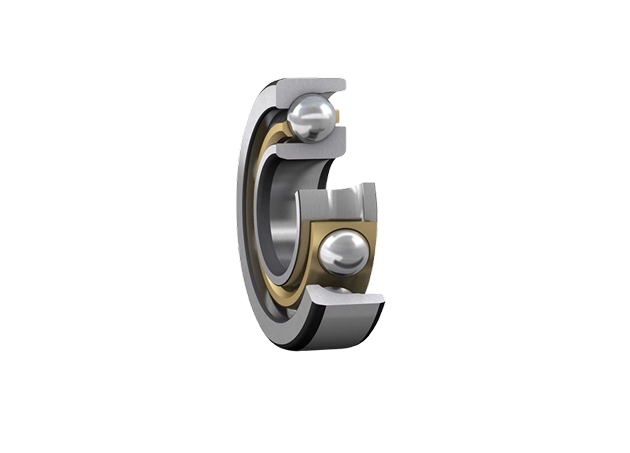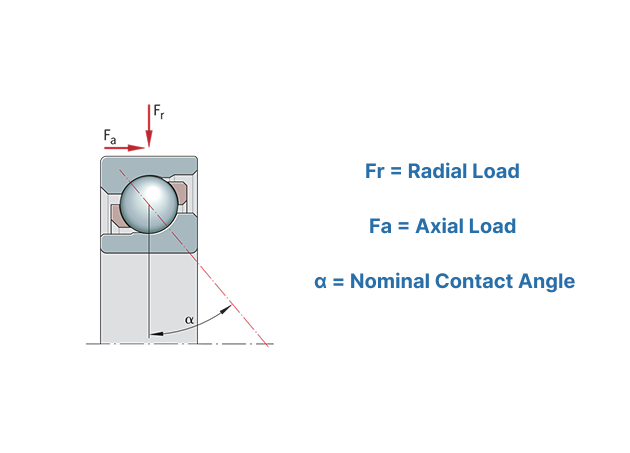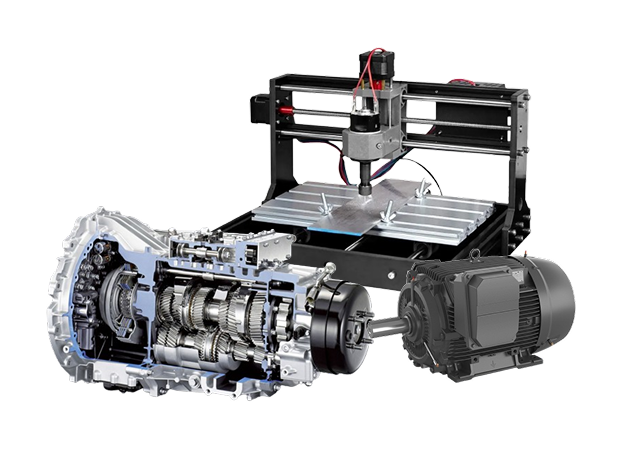Home / Product / Ball Bearings / Angular Contact Ball Bearings / Single Row Angular Contact Ball Bearings (General)
Single Row Angular Contact Ball Bearings (General)

Super precision angular contact ball bearings are engineered for high-speed, high-accuracy applications such as machine tools, aerospace systems, and robotics.
Loading...
Total 600 Results
Part Number
Interchangeable
System of Measurement
Contact Angle
For Load Direction
Bore Dia
Outer Dia
Width
External Diameter On Inner Ring (Small Side Face)
Dynamic Radial Load
Static Radial Load
Price($)
7311 BEP
SKF
Metric
40°
Angular Contact
55 mm
120 mm
29 mm
66.66 mm
17842 lbf
12375 lbf
41.08
7411 BCBM
SKF
Metric
40°
Angular Contact
55 mm
140 mm
33 mm
72.01 mm
24975 lbf
17212 lbf
101.08
7411 BGAM
SKF
Metric
40°
Angular Contact
55 mm
140 mm
33 mm
72.01 mm
24975 lbf
17212 lbf
127.69
7411 BGBM
SKF
Metric
40°
Angular Contact
55 mm
140 mm
33 mm
72.01 mm
24975 lbf
17212 lbf
88.65
7411 BGM
SKF
Metric
40°
Angular Contact
55 mm
140 mm
33 mm
72.01 mm
24975 lbf
17212 lbf
84.43
7411 BM
SKF
Metric
40°
Angular Contact
55 mm
140 mm
33 mm
72.01 mm
24975 lbf
17212 lbf
147.25
7212 ACCBM
SKF
Metric
25°
Angular Contact
60 mm
110 mm
22 mm
69.299 mm
15638 lbf
12600 lbf
7212 BECBJ
SKF
Metric
40°
Angular Contact
60 mm
110 mm
22 mm
69.32 mm
13725 lbf
11250 lbf
40.51
7212 BECBM
SKF
Metric
40°
Angular Contact
60 mm
110 mm
22 mm
69.32 mm
13725 lbf
11250 lbf
48.56
7212 BECBP
SKF
Metric
40°
Angular Contact
60 mm
110 mm
22 mm
69.32 mm
13725 lbf
11250 lbf
52.24
7212 BECBPH
SKF
Metric
40°
Angular Contact
60 mm
110 mm
22 mm
69.32 mm
13725 lbf
11250 lbf
7212 BECBY
SKF
Metric
40°
Angular Contact
60 mm
110 mm
22 mm
69.32 mm
13725 lbf
11250 lbf
44
7212 BEGAM
SKF
Metric
40°
Angular Contact
60 mm
110 mm
22 mm
69.32 mm
13725 lbf
11250 lbf
53.24
7212 BEGAP
SKF
Metric
40°
Angular Contact
60 mm
110 mm
22 mm
69.32 mm
13725 lbf
11250 lbf
47.92

Supports Combined Loads Efficiently
Single row angular contact ball bearing is a basic type of bearing, designed to accommodate both radial and significant axial loads simultaneously, but only in one direction for a single bearing.
The internal geometry features offset raceways creating a contact angle, enabling this crucial capability. This makes them an ideal choice for applications where both load types are present and need reliable management, such as in pumps and compressors.
Select these when simple radial bearings aren’t enough.
Variety of Contact Angles Available
These angular contact bearings are available with different standard contact angles (commonly 15°, 25°, 30°, 40°). Different contact angles result in different performance: larger angle provides higher axial load capacity but generally lower speed capability, while smaller angle offers higher speed potential but lower axial capacity.
Choose the contact angle that best balances the axial load magnitude and operational speed requirements for your specific machinery, ensuring optimal performance and lifespan.


Versatile Choice Among Bearing Types
As a widely used type of bearing, single row angular contact ball bearings offer a versatile solution for many industrial applications like gearboxes, electric motors, and machine tool components where combined loads occur.
While a double row angular contact ball bearing offers bidirectional axial support in one unit, single row bearings provide more flexibility in arrangement and preload control. They represent a reliable and cost-effective choice for numerous standard engineering challenges.
FREQUENTLY ASKED QUESTIONS

Why can a single bearing only take axial load one way?
Because the internal raceways are offset relative to each other, creating an angle. Load is transmitted along this angle, meaning axial force can only be properly supported in one direction based on how the bearing is oriented.
What's the main difference between single row angular contact ball bearings vs. double row angular contact ball bearing?
A single row bearing has one row of balls and handles axial load in one direction (when used alone).
A double row angular contact ball bearing has two rows, typically arranged internally like a DB pair, handling bidirectional axial loads in a single, more compact unit.
How do I choose the right contact angle when buying?
Consider your load ratio and speed. Higher axial load component suggests a larger angle (e.g., 40°). Higher speed requirements favor a smaller angle (e.g., 25°). Consult product detail pages.
How long will it take to ship after the payment?
We have sufficient inventory. Most orders will be shipped within 10 days or less. After the order is dispatched, you can track the logistics information at any time until the goods are signed for.